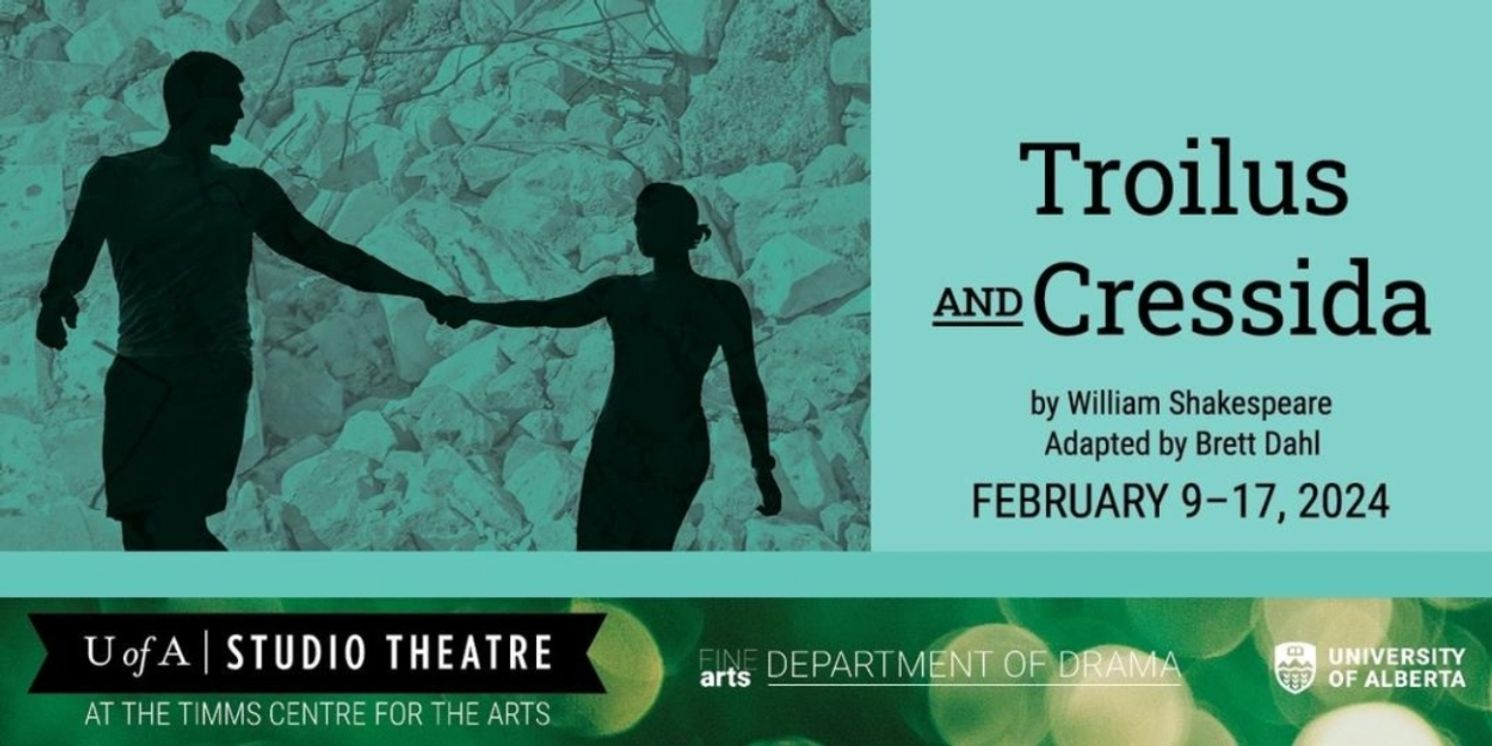Review: TROILUS AND CRESSIDA Opens at the University of Alberta's Timms Centre for the Arts
The production runs at the Timms Centre for the Arts’ Studio Theatre until February 17.

A woman in a pink chiffon dress tentatively appraises a pair of red pumps. She steps into them and writhes in place, oblivious to her fellow Trojans emerging from the darkness around her. So begins the Timms’ Centre for the Arts’ production of William Shakespeare’s 1609 tragedy, Troilus and Cressida.
Unlike other, better-known Shakespearean tragedies such as Macbeth, Troilus and Cressida paints an especially visceral portrait of political turmoil. In this case, it is the infamous Trojan War: a 10-year-long battle between the Greek cities of Troy and Mycenae. Caught in its crosshairs are young Mycenean lovers Prince Troilus (Spenser Kells) and Cressida (Jacquelin Walters), the daughter of a high-ranking priest. Not long after professing their love for each other, Cressida is kidnapped and exchanged with Troy in return for the captive Mycenean commander, Antenor (Elyse Roszell). Heartbroken, Troilus will do whatever it takes to rescue Cressida and bring her back to Mycenae.
The drama unfolds across a minimalist set featuring a central raised platform and a catwalk extending toward the front row of the audience. Cast members periodically drape translucent curtains from the four pillars surrounding the platform, alluding to the setting of the soldiers’ camps. The overall effect is striking, particularly when bathed in ominous, deep-red light.
Performing Shakespeare is no easy feat, but the 13-person cast makes it look effortless. Kells and Walters share palpable chemistry as the two romantic leads, especially when their characters first express their feelings for each other. The show’s other couple- the legendary Prince Achilles (Megan Holt) and his friend-turned-lover, Patroclus (Elyse Roszell)- also receive significant stage time. The fellow soldiers’ romance is brought fully into the spotlight rather than being only implied. It would also be remiss not to mention Cressida's flamboyant uncle, Pandarus (Michael Watt). Like Achilles and Patroclus, Pandarus is also portrayed as an unabashedly queer man. Watt’s impeccable comedic timing brings much-needed humour to the otherwise dark story; he also doubles as the bumbling, equally hilarious maid, Thersities.
Along with exploring Troilus and Cressida through a queer lens, director Brett Dahl’s adaptation features plenty of stage combat and original music by Michael Watt. In what is perhaps the show’s most arresting moment, soldiers charge at each other with swords on a dust-strewn battlefield. Choreographed by Morgan Yamada, the combat scenes lend the play an almost cinematic quality. Other creative choices include repetitive, dance-like sequences performed periodically by Cressida, Achilles, and Patroclus. The movements are occasionally distracting, especially when these characters are not at the scenes’ focal point.
Despite some sound issues during the opening scene, the cast carried on with admirable professionalism. Along with Dahl and the rest of the creative team, they delivered a memorable, occasionally heartbreaking production of Troilus and Cressida. Audiences have until February 17 to experience it for themselves.
Photo from the University of Alberta’s Studio Theatre website.
Reader Reviews
Videos


